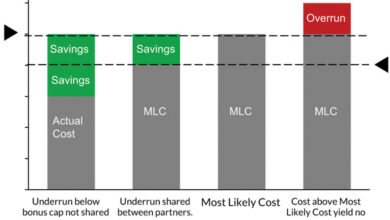Wirelines
Proposed US Senate bill seeks to streamline permitting process for energy projects
On 22 July, US Senators Joe Manchin (I-West Virginia) and John Barrasso (R-Wyoming) released their proposed Energy Permitting Reform Act of 2024. The bill aims to speed up the deployment of new energy infrastructure projects and boost enegy production. It will facilitate faster permitting processes for coal, oil and gas, renewable energy and mining and transmission lines.
The bill advanced to the full Senate after receiving a 15-4 vote in favor in the Senate Energy and Natural Resources Committee. A vote in the Senate has not been set as of 13 August.
Among other things, the bill establishes a 150-day statute of limitations from the date of the final agency action on a project; requires courts to expedite review of legal challenges; and sets a 180-day deadline for federal agencies to act on remanded authorizations. It also requires the US Interior Department hold at least one offshore oil and gas lease sale and one offshore wind lease sale per year from 2025-2029.
The bill aims to boost onshore oil and gas development by setting a minimum requirement for the amount of acres offered for leasing, extending the life of a permit to drill by one year, and streamlining requirements for federal permits needed for non-federal lands. The bill also sets a 90-day deadline for the US Department of Energy to grant or deny LNG export applications following environmental reviews. Applications will be considered approved if the department fails to meet the deadline.
In a statement, API Executive Vice President and Chief Advocacy Officer Amanda Eversole said, “At a time of persistent inflation, it’s long past time to fix our nation’s broken permitting system and unlock the domestic resources needed to meet rising demand for affordable, reliable energy. This legislation not only takes tangible steps toward a more transparent, consistent and timely permitting process, but also ends the administration’s misguided LNG export permit pause, strengthening American energy leadership while helping to reduce emissions worldwide. We applaud Senators Manchin and Barrasso for renewing bipartisan efforts to build the infrastructure needed for today and the future, and we call on Congress to take up this urgent priority.”
Click here for a complete summary of the proposed legislation.
US federal district judge overturns LNG export pause
In July, a US federal district court sided with 16 states to lift the Biden Administration’s pause on new permit approvals for LNG exports, thus resuming the approval process.
Judge James Cain Jr. of the Western District of Louisiana ruled that the US Department of Energy (DOE) failed to justify why it needed to pause approvals to review the process by which it permits projects.
On 26 January, US President Joe Biden had announced a “temporary and perhaps indefinite” pause on pending decisions of LNG exports. On the same day, the US DOE also announced a pause in reviewing applications to export LNG to non-free trade agreement countries, which effectively banned new authorization of LNG exports to all but 18 countries.
Click here to read the US district court’s ruling overturning the LNG export pause.
US BLM proposes changes to oil and gas operator land use in Colorado
The US Bureau of Land Management (BLM) proposed changes to existing BLM resource management plans to promote conservation of wildlife corridors and priority big game habitat on public lands in Colorado.
This proposal would have an impact on oil and gas activity in the state. Wherever lands are open to oil and gas leasing under existing resource management plans, oil and gas operators would be required to develop and implement mitigation plans to minimize and offset direct, indirect and cumulative adverse impacts.
Authorizations for new oil and gas facility locations within high-priority big game habitat will be avoided when density exceeds one active oil and gas location per square mile or contributes to an increased density beyond one active oil and gas location per square mile.
The BLM initiated the process in July 2022 with public scoping and released a draft environmental impact statement in November 2023 for a 90-day public comment period and review. It expects to approve the plan by November.
BSEE letter underscores decommissioning obligations
The US Bureau of Safety and Environmental Enforcement (BSEE) has issued a letter to lessees, operators and contractors engaged in authorized activities on the US Outer Continental Shelf (OCS) reminding the industry of “its existing decommissioning obligations and BSEE’s commitment to ensuring that industry timely decommissions OCS energy infrastructure.”
In the letter, BSEE said it has enforced, and will continue to enforce, decommissioning requirements as soon as decommissioning obligations become due. It will also “continue to review its regulations and policies to ensure that it is using all tools available under its statutory and regulatory authority to ensure timely decommissioning.”
“BSEE encourages all companies with decommissioning obligations to decommission OCS energy infrastructure within the regulatory time frames,” the bureau said in the letter.



